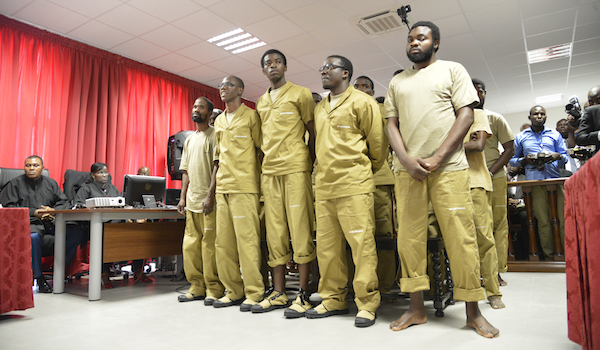Angola :: The struggle for justice continues
Release of activists does not represent an end to violations of freedom of expression and assembly

The activists were arrested while reading a book on the use of non-violent tactics against authoritarian governments. A recent decision by the Angolan Supreme Court resulted in the release, in late June and early July, of the 17 activists charged with “preparatory acts of rebellion” and “criminal association”. They had been detained since June 2015, when they were arrested at a meeting to read and discuss a political book.
The activists were released after a habeas corpus petition was filed by their defense claiming the case was unconstitutional and requesting the acquittal of all the people involved.
However, their conditional release does not represent the end of the violations. According to the court, the released activists are forbidden to leave the country and must report to the authorities once a month. They are also required to appear before the court whenever summoned.
Read more
Follow the timeline to see the main cases of Angolan activists detained in recent month:
According to Ana Cernov, coordinator of the South-South program at Conectas, the struggle to stop the violations in Angola shall continue, “since there can be no democracy without respect for human rights and freedom of expression”.
“It is nothing new for the Angolan authorities to arbitrarily detain activists. The country needs to live up to the commitments it has made internationally, which require it to respect the rights to freedom of assembly, association and expression.”
Besides speaking out publicly against the decision of the Angolan government at the time of the arrests, Conectas has also condemned the negligence of Brazil in the case. Since 2015, the organization has been pressuring the Brazilian government to engage in dialogue with the Angolan authorities and negotiate the release of the activists.
Ongoing threat
In power for nearly four decades, President José Eduardo dos Santos continues to represent a threat to the fundamental freedoms of Angolans who oppose his government.
Since 2011, Angolan organizations have been denouncing recurring practices by the State to restrict the freedom to organize demonstrations, even though the rights to freedom of expression and peaceful assembly are enshrined and protected by the International Covenant on Civil and Political Rights and also by the African Charter on Human and Peoples’ Rights – two international commitments to which Angola is a State Party.
During his time in Brazil in May 2015, Manuel Nito Alves, a member of the Angolan Revolutionary Movement and one of the 17 imprisoned activists, participated in the 14th International Human Rights Colloquium in São Paulo. At the time, he said that he sees no possibility of applying international law in his country. “Angola is a prison cell. There are no laws. The ones that do exist are those kept in place by the powers that be and trample on everyone else.”






